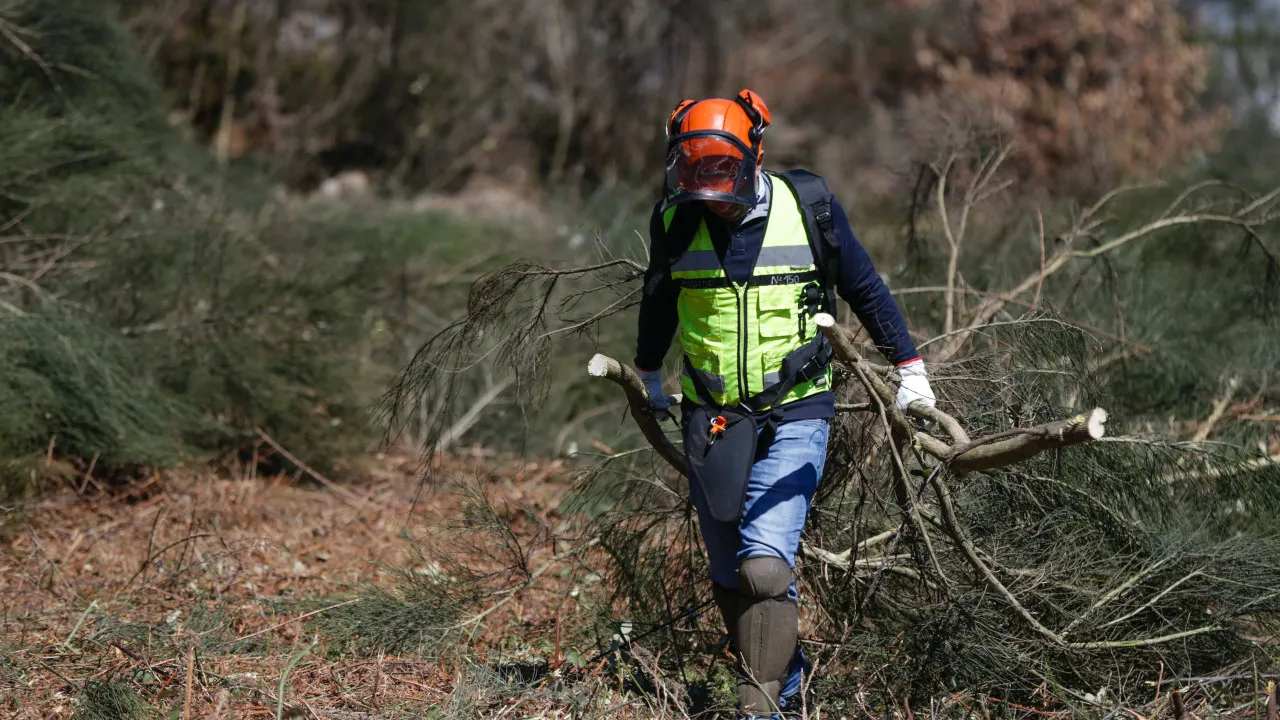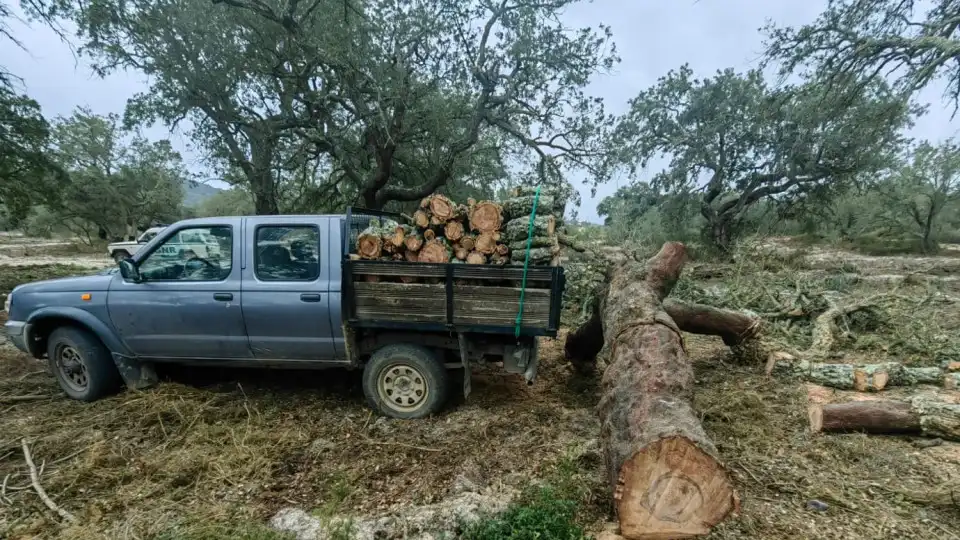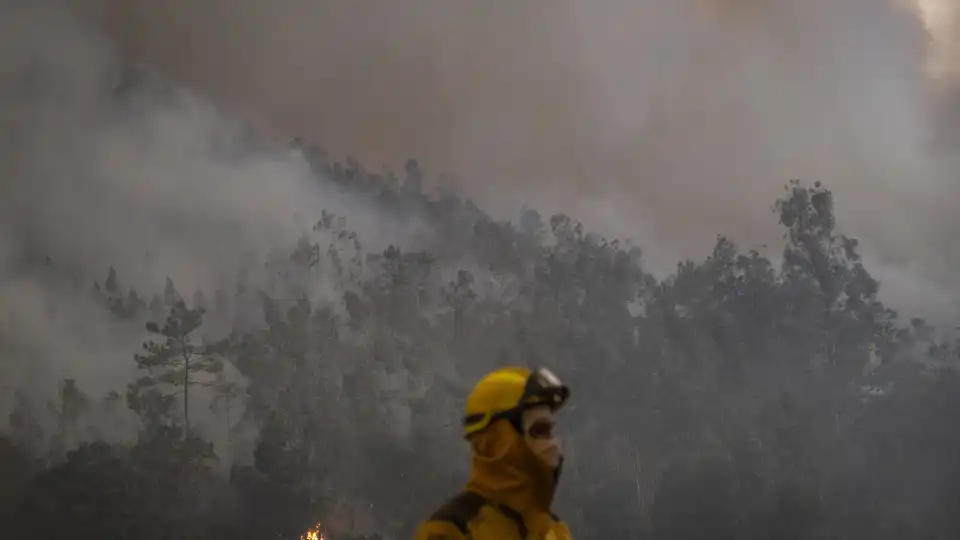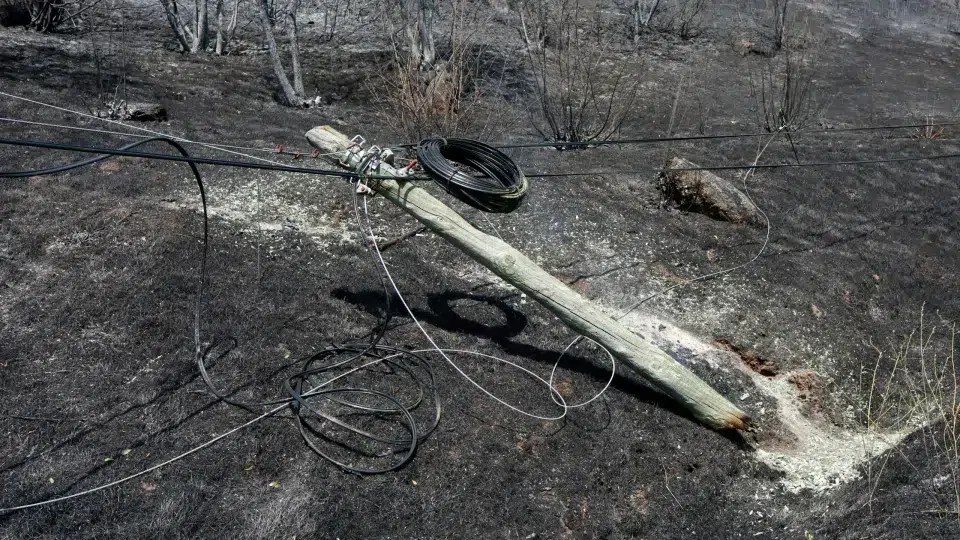Drought is causing “water stress” and affecting agricultural production across the Ribatejo Norte, the farmers’ association said today, citing “serious” problems with pastures, beekeeping and water catchment systems.
“Permanent species are all suffering, those that are not irrigated, because the drought and this heat wave is putting them under water stress,” Luís Damas told Lusa, adding that rainfed production was “a disaster in spring and summer crops” and “a disgrace for crops that supported livestock”, in terms of pastures.
The president of the Association of Farmers of Abrantes, Constância, Sardoal and Mação, in the district of Santarém, reported “serious problems” for producers and livestock in terms of pastures – “they do not exist because the grass has not grown” -, with producers “having to buy food and feed by hand” to animals, with “many selling their cattle, because they have no way to feed them”, in a situation that, he considered, “is not new”.
“With the problem of drought worsening in recent years and climate change accumulating”, and despite the rain that fell, “there was no capacity to replenish groundwater levels, so water supply problems affect all crops, in general, whether they come from water lines or those that are captured by boreholes or wells”, he added.
According to the agricultural manager, water lines, such as streams, “are dry or drying up, and wells and water collection holes for irrigation are experiencing many difficulties in reaching the water table”, in a situation that, he stressed, “has an influence on all agriculture”, but also on fauna, flora and all species, such as bees.
“The bees are also suffering a lot because there is no flora, everything has dried up, and they have no food, and beekeepers are feeding their hives,” said Luís Damas, noting that, in this case, it is not only the drop in honey production that is at stake, but the “fundamental role” of bees to “make the pollination process” of plants.
If at the level of crops such as vineyards, with the harvest coming up, cereals, in the case of corn, and fruit trees, such as apple, almond and walnut trees, there is a feeling of “apprehension” and production “will be less”, although there is still no participation of losses, the “most dramatic situations of pastures and beekeeping” is added to the “plague” of wild boars, which have caused “heavy losses” in agriculture.
“In corn crops, and in others, there are huge losses with the plague of wild boars, with a high density of individuals that find in the cornfields a habitat with humidity and where they spoil everything, with very significant production losses, along with the damage they cause in small gardens”, said Luís Damas, having also mentioned the “impact they cause on other species”, along with the “risk of swine fever for public health”.
Having noted that, “with drought and climate change”, farmers “will have to adapt crops to new realities”, Luís Damas said that there are trees that “are migrating to new territories”, such as the cork oak, which “is migrating from Alentejo to Pinhal Interior and Ribatejo Norte”.
“Nature is doing this work and farmers will have to adapt their crops,” he said, noting that the process of “adaptation and mentalities” is not done overnight and that “it is the water factor that conditions all agriculture”.
In this sense, he defended the need to maintain a “minimum acceptable level” in the Tagus water that flows in Portugal and “not be dependent” on what Spain releases.
At stake, he said, are about a thousand hectares of fertile land on the riverside banks of the municipalities of Abrantes and Constância, where the “oscillations of flows” of water affect the production of corn, wheat and sunflower, and permanent crops, such as olive groves, apple trees and almond trees, noting that farmers “are dependent on the good or bad will of the Spanish to release water” from the Alcântara dam.
“There is a protocol that defines a weekly flow, but they retain the water and, in a day or two, they release everything. We wanted a minimum daily flow, but the fundamental solution was to build a dam on the Ocreza river [a tributary of the Tagus], which would be a reservoir so that we would not be dependent on Spain,” said Luís Damas.
On the other hand, the representative of more than 300 farmers is calling on the Portuguese government to create a “greenway, with financial support and without bureaucratic burdens”, so that farmers can create ponds, small dams for strategic reserves, have cisterns and water transport pipeline systems”, for watering crops and drinking animals.
“It was important to create this greenway, without the bureaucratic burden that exists, which would be beneficial for all agricultural and forestry activity, as well as for fauna, flora and habitat regeneration,” he said.








